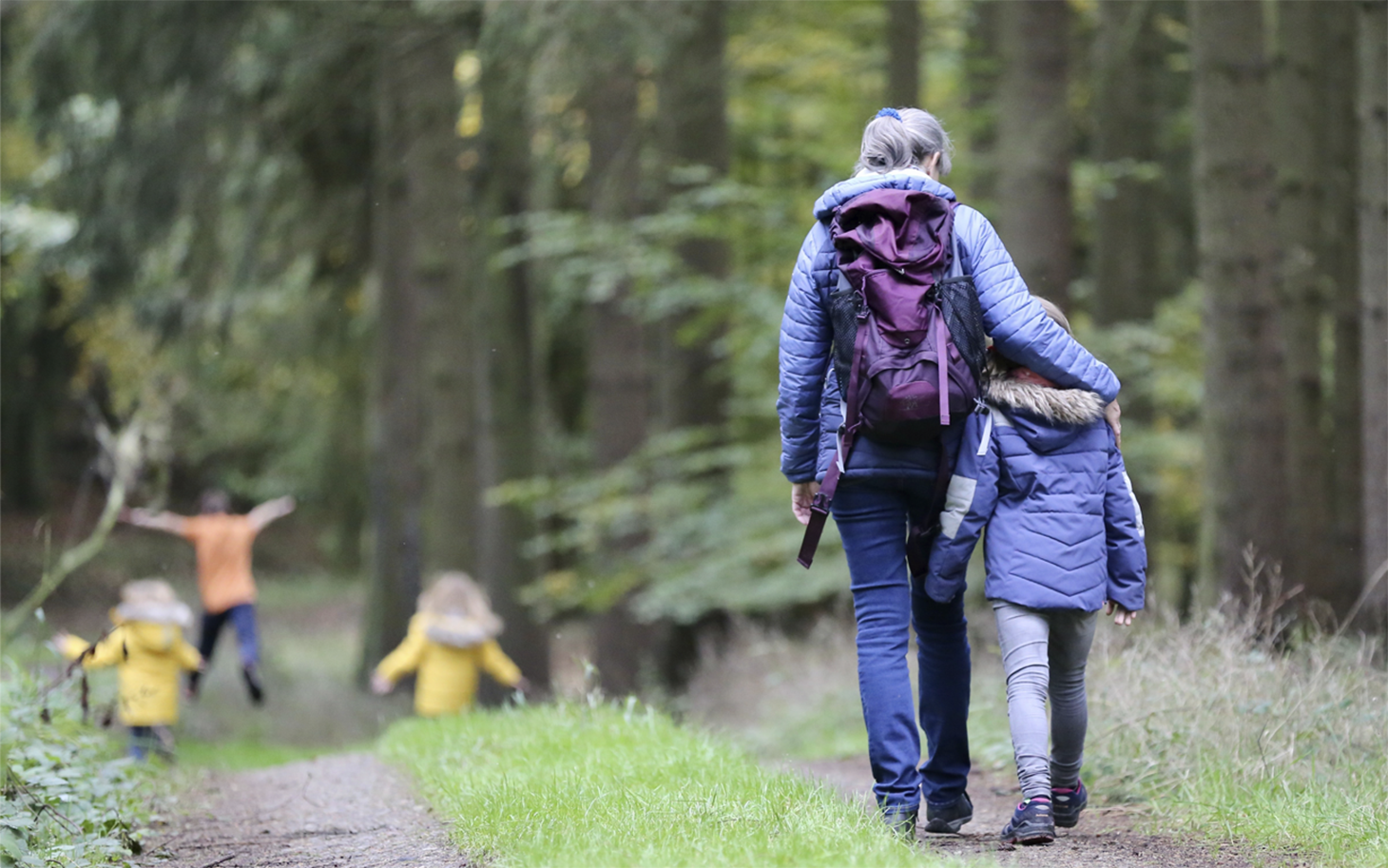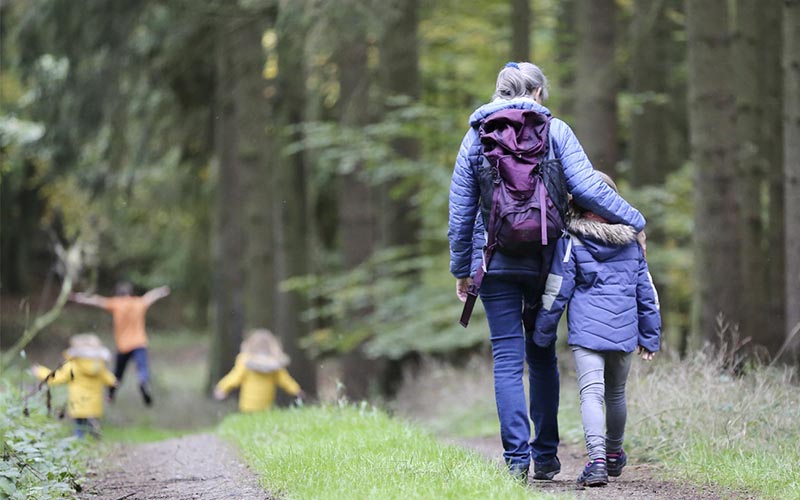When I was nine years old, my dad, Ralph, ended his own life. That loss has had a profound impact, not only on my own life, but also on the lives of those around me.
Still at junior school when my mum shared the news that was to shape the rest of our lives, I felt I was the only person this had ever happened to. None of my friends’ dads had killed themselves. They were still around to watch their children grow up.
I didn’t know what the word suicide meant. I didn’t even realise that was a thing people did. I shared my own experience of parental suicide on Radio 4’s Four Thought last year, including growing up behind the suffocating wall of silence surrounding my dad’s death and living with the far-reaching impact on my own mental health and relationships.
Almost 40 years on, I now know a lot more about suicide. As founder and CEO of Luna Foundation, I’m committed to highlighting the impact of suicide on children and young people, particularly those who lose a parent or primary caregiver at an early age.
Last May, research published in The Lancet Psychiatry revealed that children bereaved by parental suicide while aged from two to five face the most increased risk of suicide themselves. These findings came as a shock to many; it’s all too common to hear people say younger children are ‘too young to understand what happened’ or ‘they’ll just bounce back’. But the study, based on more than four million individuals, blew those assumptions out of the water. Any increase in suicide risk in young people requires our urgent attention, and it demonstrated why those bereaved by suicide in the early years must be a priority.
Last week, the government published its long-awaited Suicide Prevention Strategy for England and although children and young people are identified as a priority with measures to reduce suicides in this group, there is no provision for supporting our youngest children when a parent or carer dies by suicide in the early years.
Sadly, when a person who has children ends their own life it remains a persistent taboo. The lack of support and long-term impact of my dad’s suicide motivated me to carry out international research as a Churchill Fellow on how we can improve support and outcomes for children impacted by parental suicide. I wanted to make sure that no child felt as isolated and abandoned as I did back in 1985.
I was shocked to learn that as children who lose a parent to suicide, we’re twice as likely to be hospitalised due to depression and three times more likely to end our own lives. We know that suicide is the biggest killer of men and women under 35, and the leading cause of death for women from six weeks to 12 months after giving birth, but we don’t know how many children lose a parent by suicide in the UK as nobody counts us.
Luna is urging the government to collect and publish this data through our #TimeToCount campaign, as we urgently need to understand how and when to best support those affected. I welcome the new government push to expand mental health support teams in schools and colleges, but there’s also a need for appropriate support in early years settings. To break the chain of poor mental health and suicide risk for those who lose a parent to suicide, it’s vital that these teams receive suicide bereavement training and that all education settings have a suicide bereavement plan in place.
Everyone needs to be prepared to support children after suicide loss, to prevent them becoming our suicide statistics of the future. At Luna we’ve produced a suicide bereavement policy template for education settings and we deliver evidence-informed suicide bereavement training for people including teachers, social workers and mental health staff who work with children and young people so that they can provide timely and effective support after suicide.
We have recently developed training specifically for early years practitioners to ensure they are also prepared for when our youngest and most vulnerable children are affected. For too long this group has been overlooked. We need to join the dots between those who experience suicide, particularly the loss of a parent or primary caregiver, during childhood, and those who experience mental ill-health and later go on to end their own lives.
The new five-year strategy recognises that the death of a parent by suicide can be ‘devastating and often have lasting effects, particularly on children from a very early stage in their development’ but there is no provision for support to mitigate long-term mental health risks.
It’s disappointing that the government has missed a valuable opportunity to improve support for children who lose a parent to suicide in the early years. Every suicide is a tragedy but failing to support the youngest and most vulnerable children left behind is inexcusable.
They need, and they deserve, better. For children who lose a parent to suicide it’s #TimeToCount.
If you are experiencing feelings of distress, or are struggling to cope, you can speak to the Samaritans, in confidence, on 116 123 (UK and ROI), email [email protected] or visit the Samaritans website to find the details of your nearest branch.
Suicide & Co offers free counselling sessions for anyone over 18 who has been
bereaved by suicide. For more information visit: https://www.suicideandco.org
Survivors of Bereavement by Suicide (SOBS) run peer-support groups both online and in-person for people over 18 who have been bereaved by suicide. Find more information here
Luna Foundation has created a library of resources focused on supporting children and young people bereaved by suicide. Visit The Hub
Anna will be returning to answer questions on Thursday 12th October 2:30pm - 4:30pm
Twitter: @annawardley
Website: teamluna.org/
Guest posts
Guest Post
Guest post: ‘It’s time to count children who lose a parent to suicide in early years’
NicolaDMumsnet · 22/09/2023 11:46
Anna Wardley
Anna Wardley is founder and CEO of Luna Foundation, a social enterprise dedicated to transforming the support for children after suicide. Anna founded Luna in March 2022 to implement key recommendations from her Churchill Fellowship report entitled Time to Count, initially focusing on the provision of evidence-based suicide bereavement training for people working with children and young people.

AnnaWardleyLunaCEO · 12/10/2023 14:53
Thanks for sharing your experiences @GonnaGetGoingReturns:
'There’s a neighbour in our street with a DD aged 11 and DS aged 9 (maybe 10) whose DF ended his own life earlier this year. I think the DC are coping as well as they can do, their DM’s and presumably their DF’s parents come and stay regularly (they don’t live nearby).
A family friend who’s now approx in her 60s told me when I was younger as a teenager and suffering anxiety and depression that her DF had ended his own life when she was at boarding school aged early teens.
Any bereavement is hard to deal with and bereavement counselling and a normal routine certainly helps.'
You're absolutely right, suicide is very different to other types of bereavement, partly due to the sense of abandonment a child can feel and the result impact on their sense of self worth. We often hear testimonies from children who say they felt 'they weren't enough for their parent to stay alive for'. Children can often feel alienated in grief support groups when other children have experienced their parent's death by natural causes, when they would have done anything not to have left them.
The experience of the family in your street really resonates with me as I was also aged 9 when my dad ended his own life. It's had a huge impact on my life, and the lives of all those around me. There was so much stigma surrounding his death, and their was a suffocating wall of silence surrounding his death. We became estranged from his family, which so often occurs after a parent's suicide, and I have faced significant mental health struggles. It my my motivation to apply for a Churchill Fellowship to do international research on improving the support after parental suicide, and I was lucky to visit 19 porganisatuons in Australia, USA, Denamrk and Canada doing great work to support children, young people and their families after the death of a parent by suicide. I founded Luna Foundation in March 2022 to implement the findings from my report entitled Time to Count. If you are interested, you can view it via this link: https://issuu.com/annawardley/docs/churchillfellowship_timetocount_annawardley_web_pa
To comment on this thread you need to create a Mumsnet account.




